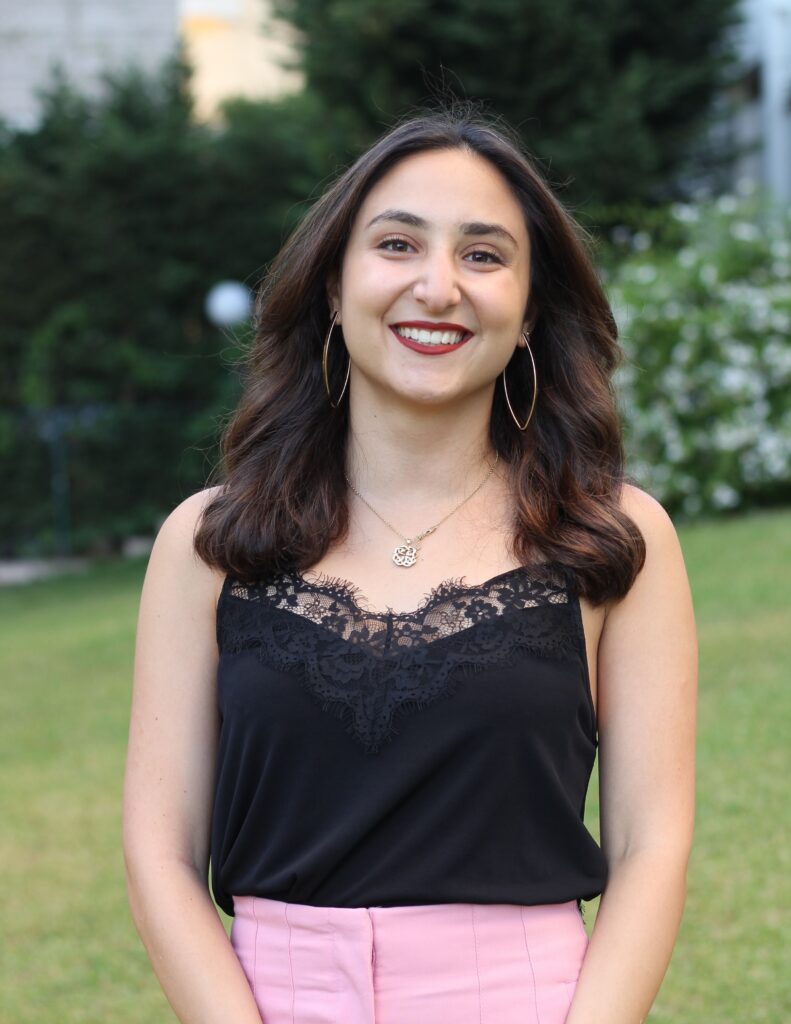By Vera Worthington 12-17-2024

Nonprofits and startups are often cast as opposites: one powered by mission, the other by market. Yet both are stitched into the same fabric that keeps society upright when politics falters and big business retreats into consolidation. From low-income student career support groups to climate-tech ventures, these organizations operate where neither government nor corporate giants can move with speed or imagination. In moments of crisis, they provide not only relief but also the blueprints for reinvention, quietly proving that resilience is built from the ground up.
A New Chapter in Nonprofit Strategy
As nonprofits strive to maximize their limited resources, building digital products that truly scale impact across diverse communities has never been more essential. Few understand this challenge better than Maria Kahale, a product expert at Free Range, an innovation and storytelling studio serving mission-driven organizations.
Maria’s approach to impact-driven product strategy is rooted in deep empathy and a rigorous, research-driven process. Her leadership spans across several industries, including the award-winning work for CodePath, where she supported the launch of their One-Stop Application Portal. The project, honored with an Anthem Award, enabled scalable and meaningful access to technology careers for underrepresented students, streamlining the application process, removing barriers, and opening new doors for thousands of bright young people from disadvantaged groups, giving them the unprecedented opportunity to turn their dreams into actions.
Beyond CodePath, Maria’s expertise has shaped outcomes for Stanford University, University of Massachusetts Lowell, Children’s Institute, and other organizations, reaching millions of users in over 35 countries. For the University of Massachusetts Lowell’s Toxics Use Reduction Institute, Maria led a website overhaul, significantly improving research access and developing a comprehensive Learning Management System for online courses. At Children’s Institute, she has conducted the first-of-a-kind, in-depth research with 30+ stakeholders, translating insights into actionable steps for growth and scalable impact, and currently leads the entire platform’s technical maintenance.
From Experience to Perspective
Maria’s remarkable journey started in Lebanon, from building Numeral Studio and orchestrating a global collaboration with clients from all over the world, across continents, to deliver brand and digital product innovations. After earning her master’s in business analytics at Babson College, the world’s leading entrepreneurship school, she has continued to amplify social impact on a global stage.
It is from these diverse, hands-on experiences that Maria has developed her approach that has become transformative for so many missions: while most of organizations have clear ambitions, they often struggle to transform their vision into effective product strategy. “Companies know what they want to achieve, but may not know how to get there efficiently and creatively,” she reflects.
Breaking Strategic Boundaries With Multi-Layered Social Research
This realization has focused Maria’s perspective on product leadership. Her solution to the challenge of practically implementing strategic plans is to always begin the process with comprehensive discovery. This means not only data gathering, but also active engagement in meaningful conversations across every group connected to the product.
This research involves series of interviews with all stakeholders, seeking an input from every department, from marketing and fundraising to program coordinators, volunteers, and on-the-ground staff. However, internal perspectives are only the first layer. Maria then actively engages the community, end users, and the core target audience, navigating language, accessibility, and technology barriers to ensure that even the hardest-to-reach voices are heard and considered.
From the Core Problem to Universal Inclusivity
“Solve problems one by one,” suggests Maria when asked how to approach the tip of the iceberg of cross-functional challenges. While the temptation is to address every need at once, she recommends putting the primary focus on solving one key problem, delivering a targeted solution, and then building outward. This enables teams to move efficiently and measure real-world outcomes early in the product life cycle.
With a core solution established, it’s time to think of the diverse target groups inclusivity. Recognizing that nonprofit audiences frequently span different literacy levels and languages, Maria’s product strategy incorporates universal symbols, meaningful color cues, and simplified navigation. She strongly believes that iconography and color signals can communicate across language barriers, ensuring that design remains relatable and recognizable regardless of a user’s national and cultural background. This also means an essential need to translate the product to a maximum range of the users’ most spoken languages.
“Launching a product is only the beginning,” believes Maria. Ongoing analytics, user feedback, and real-world observation fuel constant refinement. Her approach involves consistent tracking: which features are mostly used and which aren’t, what remains relevant and what gets outdates, requiring a change. She also highlight the importance of paying close attention to every troubleshooting report, as well as statistics on any workarounds that the users may think of.
Today, we spoke with Maria Kahale, the award-winning strategic development expert with an extensive record of international reach and global impact on the exponentially growing sector of non-profits and startups strategic consulting. We hope that her processes and perspectives may become a valuable tool for our readers, setting the benchmark for what it means to build digital tools that empower, include, and inspire communities worldwide.


